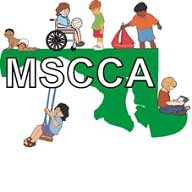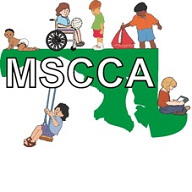
State of School-Age Child Care | Spring-Summer 2019
A quarterly update on news and resources related to out-of-school time as well as new offerings from the National Center on Afterschool and Summer Enrichment (NCASE)
______________________________________________________________
News & Resources from the Field of School-Age Child Care
Afterschool Supports Service Opportunities from Youth to Young Adulthood
http://afterschoolalliance.org//documents/issue_briefs/issue_service_74.pdf
Research shows that service learning experiences engage youth more deeply in their communities and promote positive youth development. Afterschool and summer learning programs play an important role in increasing access and availability of service opportunities for youth as well as young adults. This new issue brief from the Afterschool Alliance shares six profiles – including program characteristics, outcomes, and challenges – of afterschool programs from across the country that are encouraging civic engagement and building critical skills through service learning.
Investment in Staff Yields Summer Success for Students
Providing staff with robust training and supports is key to delivering a high-quality summer program in science, technology, engineering, and mathematics (STEM). In this issue brief, researcher Jessica Manta-Myer shares details about an evaluation of the Summer Science Project, implemented in ten elementary school sites in California. In connection with this project, the program staff received hands-on curriculum, training, and coaching in STEM. The evaluation showed increased knowledge, skills, and confidence on the part of students, and greater staff confidence in leading STEM activities, as well as high staff retention. This support model is relevant for both afterschool and summer learning programs.
Afterschool and Summer Learning: A City Strategy for Workforce Development
Preparing young people for the changing needs of the global workforce is a challenge that city officials can respond to by embracing high-quality afterschool and summer learning programs. Employers report barriers to finding workers with the skills to meet their needs. This issue brief looks at five cities where workforce development programs are engaging youth in mentoring, apprenticeships, job placement, and related activities. These experiences build young people’s social and emotional skills as they learn about career opportunities. This is a win-win “strategy for addressing future workforce needs and supporting the current workforce by giving working parents the opportunity to focus at work and be productive employees, with the knowledge that their children are in a safe and supportive environment.”
______________________________________________________________
NCASE Offerings
Promoting Learning and Growth for School-Age Children During the Summer Months: Tipsheets for Providers & Parents/Caregivers
https://childcareta.acf.hhs.gov/resource/summer-learning-fun-tips-parents-and-caregivers
Children learn best when they have opportunities to build skills and knowledge across settings, including summer child care programs and time spent at home. Many school-age children lose up to three months of grade-level equivalency in math and reading skills over the summer months. This phenomenon is known as the summer slide. NCASE has created a set of tipsheets for summertime child care providers and for parents/caregivers to help school-age children and their families make the most of the summer months and avoid the summer slide. Summer Learning and Enrichment: Tips for School-Age Care Providers shares things providers should think about before, during, and at the end of summer to help children have a fun, healthy, and enriching summer. A companion tipsheet from NCASE, Summer Learning Fun! Tips for Parents/Caregivers, gives parents and caregivers specific ideas on how to engage their children in fun, meaningful learning activities throughout the summer. Summertime child care providers can share this tipsheet with families to further support summer learning and enrichment experiences for the children they serve.
Aligning Out-of-School Time Services for Children Experiencing Homelessness
NCASE has developed a practice brief on Aligning Out-of-School Time Services for Children Experiencing Homelessness. The definitions of homeless children and youth used by the Child Care and Development Fund and the Department of Education have become aligned, providing better opportunities for collaboration between Lead Agencies and state departments of education and child care providers. This is especially true for public schools and providers serving school-age children. Out-of-school time programs are well positioned to provide supportive environments for youth experiencing homelessness as well as their families. Examples from New Hampshire and New York are highlighted in this brief, which is designed for state-, territory-, and tribal-level professionals, including Child Care and Development Fund administrators and state afterschool network leads, and 21st Century Community Learning Center leads.
Addressing Adverse Childhood Experiences in Out-of-School Time Archived Webinar
https://childcareta.acf.hhs.gov/resource/addressing-adverse-childhood-experiences-out-school-time
Out-of-school time (OST) programs can play a role in mitigating and preventing adverse childhood experiences (ACEs), which are disruptive to a school-age child’s academic and social development. State policies and initiatives are often the catalysts that support OST programs in this critical work. NCASE hosted a webinar with the National AfterSchool Association that included a discussion of research about school-age children’s development and the impact of ACEs; strategies, challenges, and solutions for providing support for school-age children in OST programs in areas such as social and emotional development; and promising practices for state systems-building that can strengthen supports to help school-age children overcome ACEs and build resilience. This archived webinar may be of interest to state- and territory-level professionals, including Child Care and Development Fund administrators, statewide afterschool network leads, NAA affiliate staff members, 21st Century Community Learning Center leads, child care resource and referral agency personnel, and training and technical assistance professionals.


 and then
and then